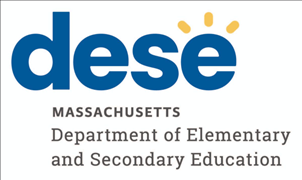MAVA Colleagues,
In the event you did not see this article, we are forwarding this to you. It was originally published in the Boston Globe.
David
State education department proposes requiring Mass. vocational schools
 Regional trade schools like Greater Lawrence Tech have sought to expand capacity to meet demand, but many still use selective admissions processes. The state is considering requiring lotteries when there are not enough seats.
Regional trade schools like Greater Lawrence Tech have sought to expand capacity to meet demand, but many still use selective admissions processes. The state is considering requiring lotteries when there are not enough seats.
The state’s popular trade schools could soon be required to distribute their scarce seats by lottery, after years of criticism from advocates who argue the schools’ selective admissions processes lock many marginalized students out of the schools.
The state’s education department proposed a regulation Wednesday that would bar the schools from ranking students based on selective criteria like grades, recommendations from guidance counselors, and personal interviews. Instead, they would be limited to using attendance and discipline as screening criteria for students to enter the lottery pool.
The state education board will discuss the policy at its meeting Tuesday and potentially vote on it in May.
After years of growth, the state’s 28 regional trade schools educate about 30,000 students but are at capacity. Last year, more than 8,500 middle-schoolers out of roughly 20,300 applicants were denied admission.
Martin West, chair of the board’s career and technical education committee, said the long-term solution is to grow the supply of seats, but in the meantime, there was a need to examine the admissions process on a school-by-school basis.
“That analysis led us in the direction of what I see as a true compromise solution,” West said. “You can screen based on those criteria that are essential to the educational model, but otherwise as public schools you should be open to all comers.”
In a news release, Governor Maura Healey said the proposed regulations are part of her larger efforts to increase access to vocational education, such as $75 million in proposed career and technical education grants to add 3,000 new seats. Her administration engaged families, educators, and the business community to determine how to increase access to these programs.
“Massachusetts’ career technical education programs play an important role in our state’s education system and economy. They provide students with the skills they need to succeed in today’s job market and help us meet the workforce needs of our employers,” Healey said in the statement. “We are proud to propose these regulation changes and appreciate the Board’s review.”
The proposed regulation would also require all districts that send students to the trade schoolstoensure their middle school students are exposed to the career programs available for them in high school; vocational school leaders have complained their efforts to recruit representative student bodies have been hampered by obstacles set up by some sending middle schools. In addition, individual lotteries could be conducted for each sending community, respecting existing local agreements on seat allocations — often critical to ensure needed financial support.
The new proposal comes after years of pressure from advocates who argue the policies are discriminatory against low-income students, students with disabilities, English learners, and students of color. Critics have argued the students who are unlikely to attend college and are most in need of such training are being displaced by high-performing students who already plan to seek higher education.
Last year, a Globe analysis of recently published admissions data confirmed the system disproportionately denies marginalized students access to vocational education. Students from low-income families, for example, were more likely to apply to the schools than their more-advantaged peers, but about 30 percent less likely to be accepted.
That trend repeats with other high-needs groups, meaning that while the schools are representative of their sending communities overall, they are not representative of the students who apply. Marginalized applicants has a lower chance of admission than the average student.
That unequal access has driven years of pressure to change the system from the Vocational Education Justice Coalition, which includes many civil rights, community, and union organizations.
In 2021, the state passed what were supposed to be sweeping trade school admissionschanges, including an amended regulation requiring the schools, beginning in 2022, to certify their policies comply with federal civil rights law. But just two schools so far have adopted lotteries — Worcester Technical High School and Assabet Valley Regional Vocational Technical High.
In 2023, two legal aid organizations filed a lawsuit against the state alleging the selective policies violated students’ civil rights. Last year, the state Legislature considered a bill that would have required similar policies to the one proposed by the education department Wednesday.
But the Massachusetts Association of Vocational Administrators has consistently argued against such a policy, disputing the validity of the admissions data and emphasizing the need to expand the number of seats available.
“Above all, we want to ensure that more students across the state are able to access these high-demand programs,” said the group’s executive director, Steve Sharek, in a statement. “We are currently reviewing the draft regulations and will reserve any specific observations for the public comment process.”
Vocational high schools have become dramatically more popular in Massachusetts over the last 30 years, and today they educate about one in eight of the state’s public high school students. Rising academic achievement for their students beginning about 20 years ago drove increased interest in the schools, and in recent years the rise in college tuition has pushed more young people toward the trades. But the specialized schools are expensive to build and expand, and their leaderssay they need more state support to meet demand.


